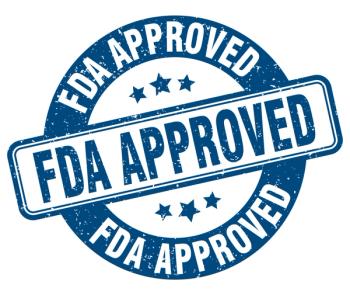
NCPIE and FDA launch Be MedWise
Launching of Be Medwise, public ed campaign about the safe use of OTCs
SELF-CARE
NCPIE launches campaign to promote safe OTC use
The National Council on Patient Information & Education (NCPIE) is kicking off BeMedWise, a public information campaign about the safe use of over-the-counter medications. The campaign, timed to coincide with the changeover this spring to a standardized "Drug Facts" label on nonprescription drugs, uses the new label as one way to raise awareness that OTC drugs are serious medicines that must be taken with care.
"A key educational point of our campaign is that OTC medicines will have the new drug facts label on them. We want consumers to read the drug facts label and pay particular attention to the active ingredient in their OTC medicines and to the warnings. We want them to be aware of the fact that certain active ingredients may appear in a number of OTC medicine products that they may be taking. The campaign is designed to support the use of that OTC label and to encourage people who can't understand the label or who may have additional questions about their medicine to seek information from their healthcare professional," said Ray Bullman, NCPIE's executive v.p.
The national campaign kicked off with a 30-second TV commercial called "Medicines Don't Mix." The commercial, created by advertising agency Saatchi & Saatchi, features a father and his young son playing outside on a fall day. The man says, "I have to admit I've never given it that much thoughttaking different medicines at the same time. But you have to be careful. I had this bad cold, so I started taking this cold medicine and then a pain reliever to bring down my feveruntil my wife pointed out that the cold medicine already contained a pain reliever. So, I was actually taking double the dose without realizing it. The best way to be sure is to know your medicines. Always compare labels. Take the time to be careful."
Bullman told Drug Topics, "We certainly are not saying that OTC medicines are not safe. We want to call attention to the fact that all medicines, including OTC medicines, may have some risks. We want people to be aware of the fact that you may be using OTC medicines inappropriately, and we want to provide the awareness so that doesn't happen."
Linda Golodner, president of National Consumers League and NCPIE's chairman, said, "It's very important for consumers to realize that even though these products are available from the shelf, they still have to read labels and be concerned about possible interactions with other medications and also with dietary supplements."
The first TV spot was donated by McNeil Consumer and Specialty Pharmaceuticals, which provided an unrestricted educational grant to develop the campaign and to purchase airtime for the spot. A 15- and 30-second radio commercial, which carries the same theme, will air during the next quarter. "Our intent is to encourage companies that make OTCs to become Be MedWise partners as well," said Bullman.
The campaign also includes a new Web site at
The campaign follows on the heels of a national survey conducted by Harris Interactive for NCPIE. The survey compared the perceptions of 1,011 adult Americans with a national sample of physicians, nurses, and pharmacists. The survey found that while 79% of the medical professionals surveyed said they are somewhat or very concerned about the inappropriate use of OTC medicines, many Americans do not recognize the potential risks of taking OTC medicines incorrectly.
The survey also revealed the following:
One-third of adult Americans, or 64 million consumers, said they have taken more than the recommended dose of a nonprescription medicine. Of these individuals, the survey reported, two-thirds took more than the recommended amount at a single time, three-fifths downed the next dose sooner than directed, and two-fifths ingested more than the recommended number of doses in a day.
Many consumers are overlooking important information that could aid them in taking OTC drugs more effectively. Even though three-fifths of Americans took nonprescription medicines routinely, the survey found that most Americans don't know the active ingredients in the OTC products they are using. When asked to identify the active ingredient in common brands of OTC pain relievers, only 34% knew this information.
While 95% of Americans who use nonprescription medicines read some portion of the label when they buy an OTC medication or when they use it for the first time, only a third of those surveyed said they look for the active ingredient; one in five said they seek out the usage directions; and one in six looked at the dosage level.
Sandra Levy
Sandra Levy. NCPIE and FDA launch Be MedWise.
Drug Topics
2002;4:45.
Newsletter
Pharmacy practice is always changing. Stay ahead of the curve with the Drug Topics newsletter and get the latest drug information, industry trends, and patient care tips.























